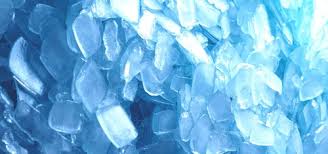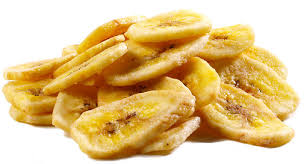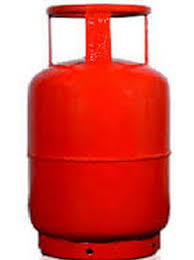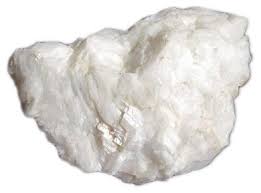Sodium Silicate Production in Nigeria; The Feasibility Report.

Silica Sand/Quartz constitutes one of the most readily available geological materials used in industries and factories such as glass manufacturing companies. Silica Sand/Quartz are said to consist of high optimal percentage of silicon dioxide (SiO2) which is a very good chemically stable element and it remains almost the same no matter the series of cycles it may have gone through, either in transportation or re-deposition.
Quartz is silica occurring alone in pure state. Silica/glass sand on the other hand are products of weathering, erosion and transportation by rivers or/and the sea. Naturally occurring silica sands may contain some undesirable impurities like accessory haematite, rutile and dolomite etc.
Nigeria has extensive deposits of good quartz silica sands. Many of which are associated with the coastal plain of sedimentary areas in the southern part of the country, although deposits also occur in some inland areas. The major silica sand deposits in the country are located at Ughecll–Delta State, Igbokoda, Ondo State, Baure, Katsina State, Badagry, Lagos State, and along the sandy shore line of the Atlantic, some inland deposit are also reported at Shebu, Plateau State and Ilaro, Ogun State.
Silica sand and Sodium carbonate are the two principal raw materials used in the manufacture of sodium silicate. Soda ash will be supplied from domestic sources and that of Silica sand is abundant along the course of main rivers.
This report seeks to examine the financial viability or otherwise of producing sodium silicate from silica sand and sodium carbonate (dense) in Nigeria.
Sodium silicate is one of various water – soluble substances obtained in the form of crystals, glass, powder or aqueous solutions by chemical fusion of silica sand and soda ash.
At present, there are forty (40) varieties of commercial sodium silicate, each with a specific use. Sodium silicate is an essential raw material in the manufacture of washing soap, ceramic wares, flooring and metal foils, paper boards and corrugated containers, wall board etc. Vitreous silica compounds (glass bottles and tumblers) are also produced in a suction fed type blowing machine.
Sodium Silicate is a colourless compound of oxides of sodium and silica. It has a range of chemical formula varying in sodium oxide (Na2O) and silicon dioxide or silica (SiO2) contents or ratios. It is soluble in water and it is prepared by reacting silica sand and sodium carbonate at a high temperature ranging from 1200oC to 1400OC. Aqueous solution of sodium silicate is called water glass.
Sodium silicates are produced in the form of a variety of compounds ranging from Na2O.4SiO2 to 2Na2O.SiO2 by properly proportioning the reactants. Sodium silicates varying in ratio from Na2O.1.6SiO2 to Na2O.4SiO2 are known as colloidal silicates. These are sold as 20% to 50% aqueous solutions called water glass.
Sodium metasilicate has the ratio of Na2O.SiO2 and is a definite crystalline compound, which forms various hydrates. Substances having higher sodium oxide content are sodium squisilicate 1.5Na2O.SiO2 and sodium orthosilicate 2Na2O.SiO2. The more alkaline silicates including sodium metasilicate (Na2O.SiO2) are crystalline materials with definite structures and characteristic properties.
These are used chiefly as cleaners and detergents. The more siliceous sodium silicates are glasses, typical non-crystalline solid solutions, which are important mostly for their adhesive and binding properties.
The demand for sodium silicate is quite high in Nigeria and the raw material is also available in commercial quantity.
The proposed production volume is two (2) tons/day at one hundred percent (100%) capacity utilization and the plant would operate at eighty percent (80%) of the installed capacity for a single shift of eight (8) hours per day for three hundred (300) working days per annum.
Table of Contents
EXECUTIVE SUMMARY 1.0 Business Overview 1.1 Description of the Business 1.2 Vision and Mission Statement 1.3 Business Objective 1.4 Critical Success Factor of the Business 1.5 Current Status of Business 1.6 Description of the Business Industry 1.7 Contribution to Local and National Economy 2. Marketing Plan 2.1 Description of products 2.2 Product Packaging and delivery 2.3 The Opportunity 2.4 Pricing Strategy 2.5 Target Market 2.6 Distribution and Delivery Strategy 2.7 Promotional Strategy 2.8 Competition 3. Production Plan 3.1 Description of the Location 3.2 Raw Materials 3.3 Production Equipment 3.4 Production Process 3.5 Production Cost 3.6 Stock Control Process 3.7 Pre-Operating activities and expenses 3.7.1 Operating Activities and Expenses 3.8 Project Implementation Schedule 4.0 Organizational and Management Plan 4.1 Ownership of the business 4.2 Profile of the promoters 4.3 Key Management Staff 4.3.2 Management Support Units 4.4 Details of salary schedule 5. Financial Plan 5.1 Financial Assumption 5.2 Startup Capital Estimation 5.3 Source of Capital 5.4 Security of Loan 5.5 Loan Repayment Plan 5.6 Profit and Loss Statement 5.7 Cash flow Statement 5.8 Viability Analysis 6.0 Business Risk and mitigation factor 6.1 Business Risks 6.2 SWOT Analysis
Project Specification:
Additional Info
Get this Report
Direct bank transfer
To order the report, Please do pay the sum of ₦50,000 into
Account Name : Foraminifera Market Research Ltd
Account Number : 274 20 569 37
Account Name : Foraminifera Market Research Ltd
Account Number : 101 76 603 95
Account Name : Foraminifera Ventures
Account Number : 011 66 066 32
Make your payment directly into our bank account. Please use your Order ID as the payment reference. Your order will not be shipped until the funds have cleared in our account.
Instructions
After payment call us on 01 -29 52 413 / 08033782777 or email us at foraminiferamarketresearch@yahoo.com with the payment details. After payment confirmation, the soft copy of the report would be sent to you within 24 hours.



